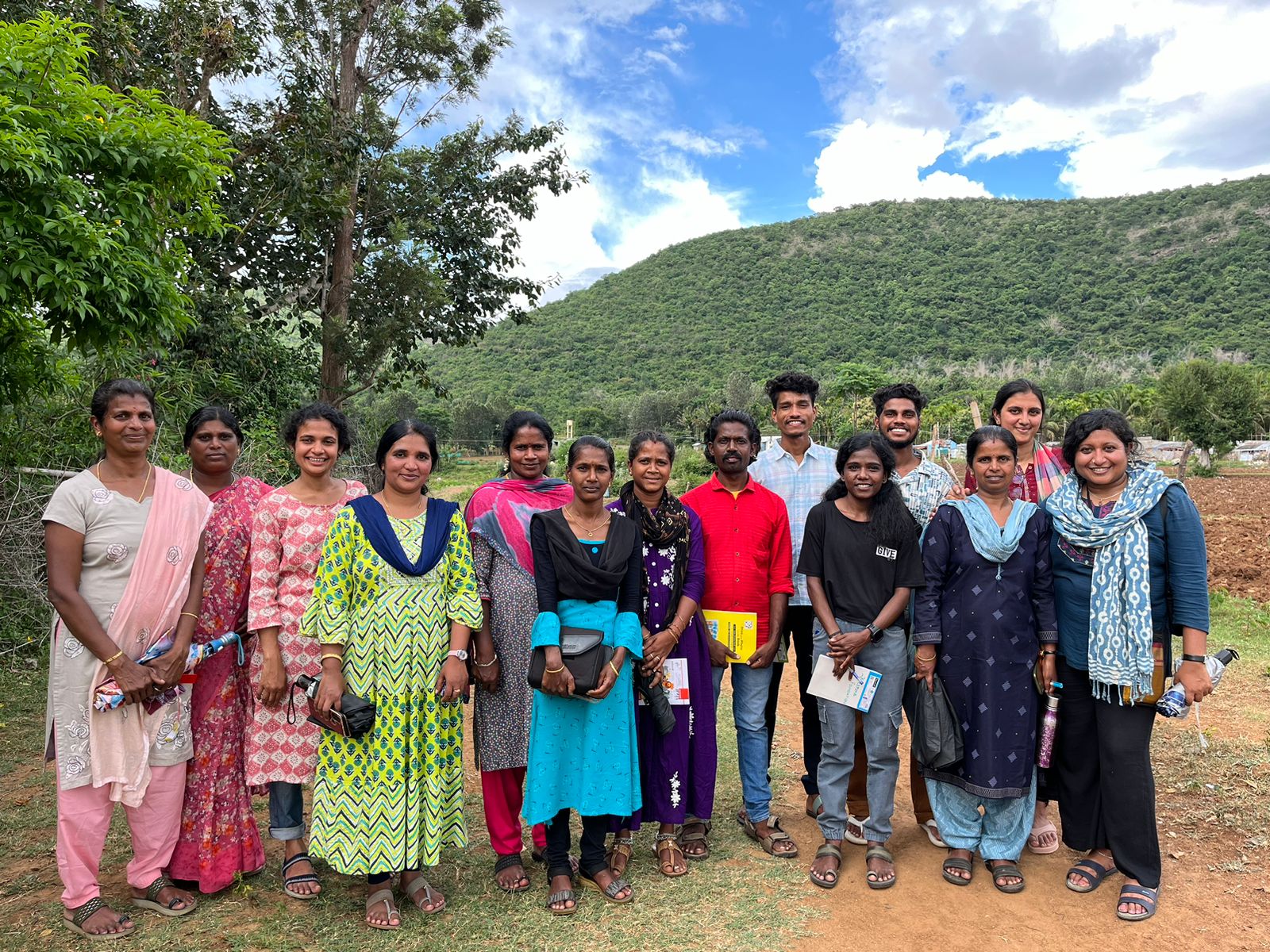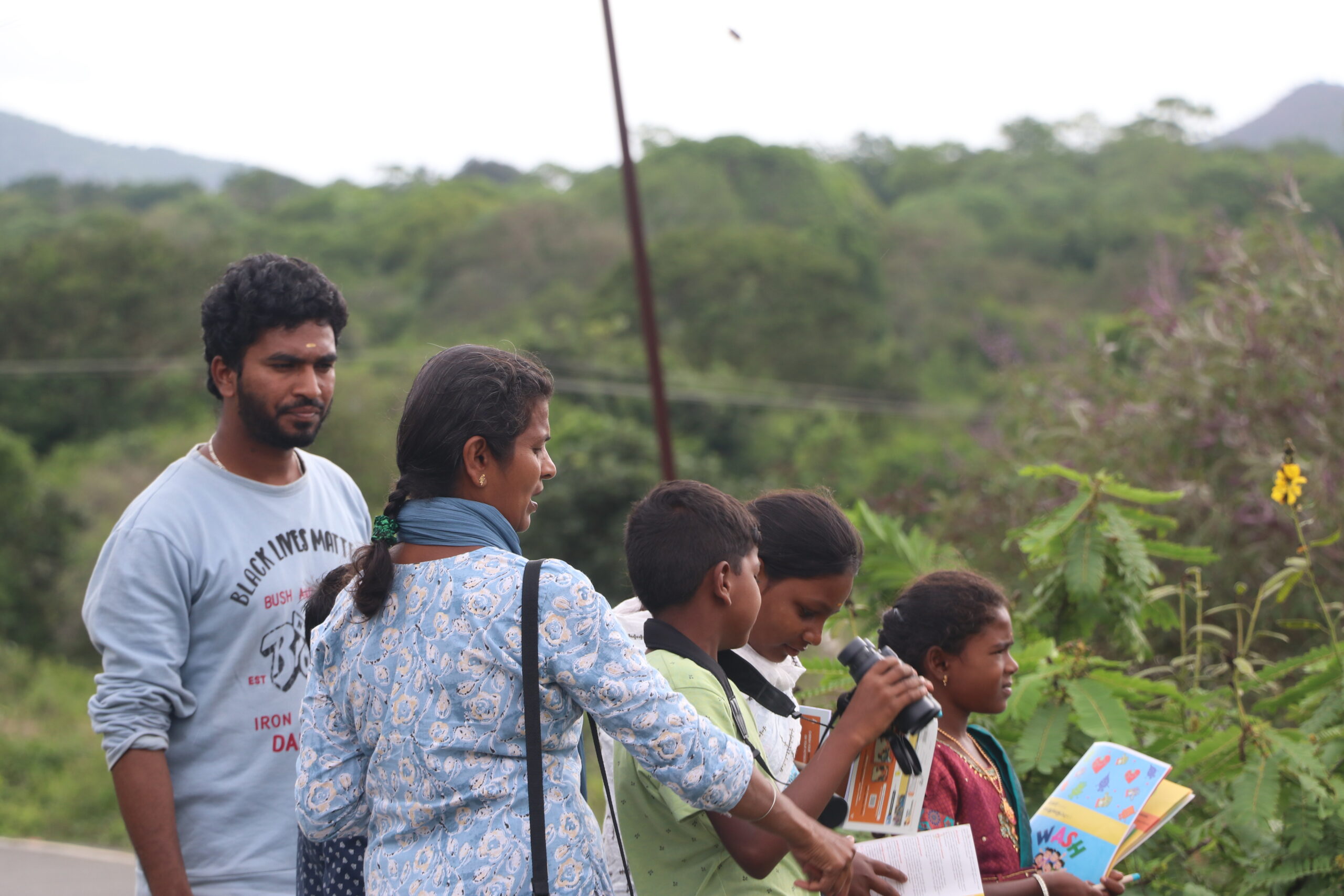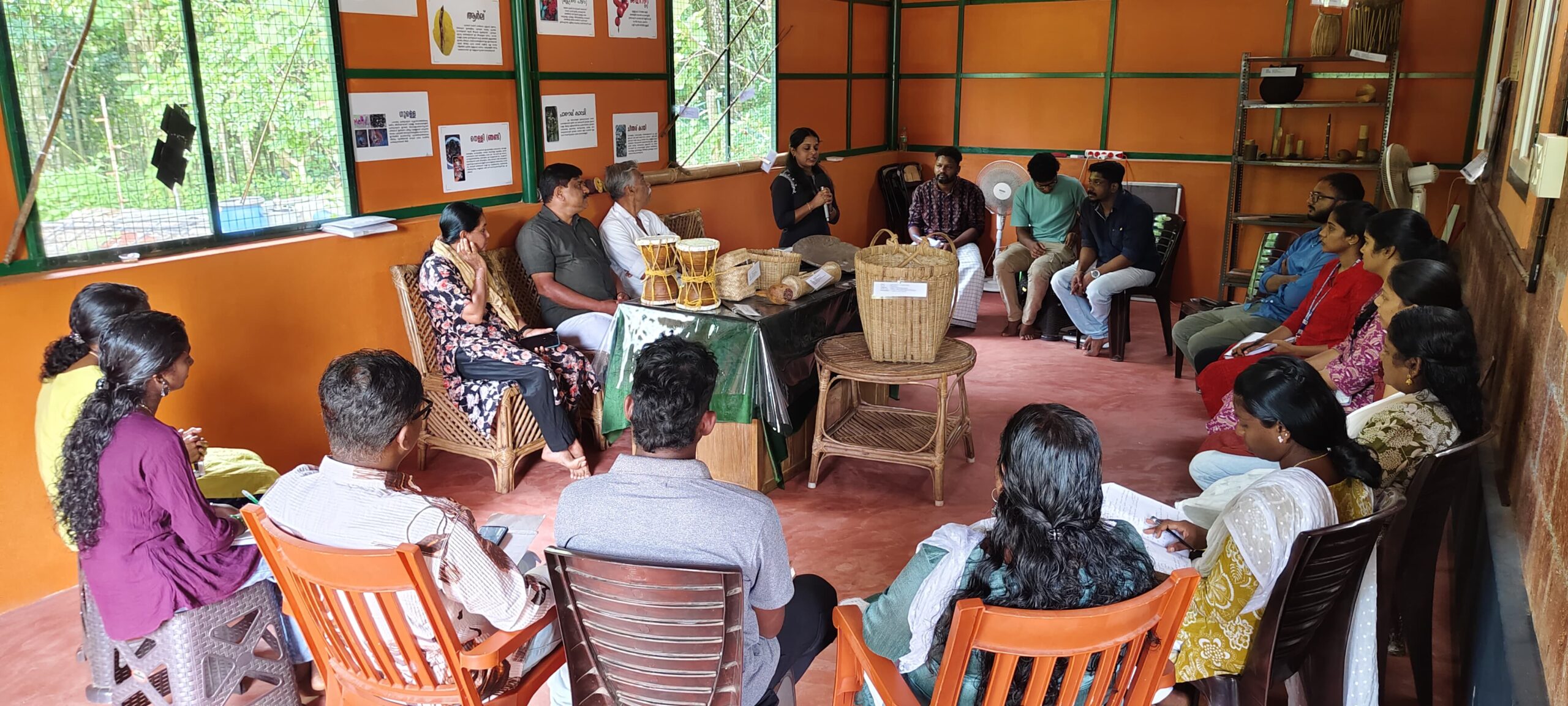By Vidya S. and Reshma, Technical Coordinators, Climate Change
We commenced this academic year with lots of energy as a team. We always have aimed to train and build capacity for our educators on relevant topics with climate change. This month, we held a the biodiversity checklist training to help educators with their upcoming lesson plans.
As part of biodiversity in school, kitchen gardens have been one of the main ways climate smart school students learn. Students have always been incredibly interested in learning through kitchen gardens, from sowing seeds to harvesting the crop. Throughout their curriculum, climate change educators have linked kitchen garden activities with lesson plans.
On July 12th and 13th in Hasanur, the Climate Change team conducted capacity building workshops for our Climate educators, GAGGA fellows from Attapadi, and UD Fellows from Hasanur. 11 participants attended (3 males and 8 females). The main objective of the workshop was to give the participants an idea of what a collective looks like, and how can we work as a collective. Ms. Vandana Kannan, a wildlife biologist from our Biodiversity team, was the resource person. She mainly touched upon the main aspects of biodiversity like types of habitat, taxonomic groups in flora and fauna and identification. The session had interactive activities, such as where the participants drew an evolutionary tree from their perspective to understand the concept of biodiversity. They also had a field activity where the participants mapped different landscapes (a forest and a nearby lake), and prepared a biodiversity checklist. Climate change not only affects human beings, but also leads to a loss of biodiversity.
Participants told us that this was the first time they have attended a workshop where they had the opportunity to see Biodiversity through the lens of climate change. We mainly discussed the biodiversity angle throughout the session, but after doing the activity, the participants were also able to talk about the social aspect of land and how they see the way human activities affect different landscapes. Participants also presented their thoughts and notes on activities we did in the field. The next day we had a field visit to Punajanur, to visit the community farming land and also got a chance to visit another farm land, where we had a discussion with farmer named Basama about her farming life. Her story was inspiring, as she valued the concept of sharing her produce with neighbours. This training encouraged the participants to see their landscape with insight on biodiversity. The diversity within the participants gave us an understanding of different perspectives and thoughts.


















